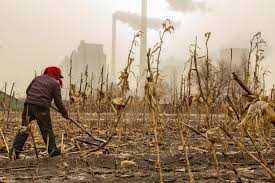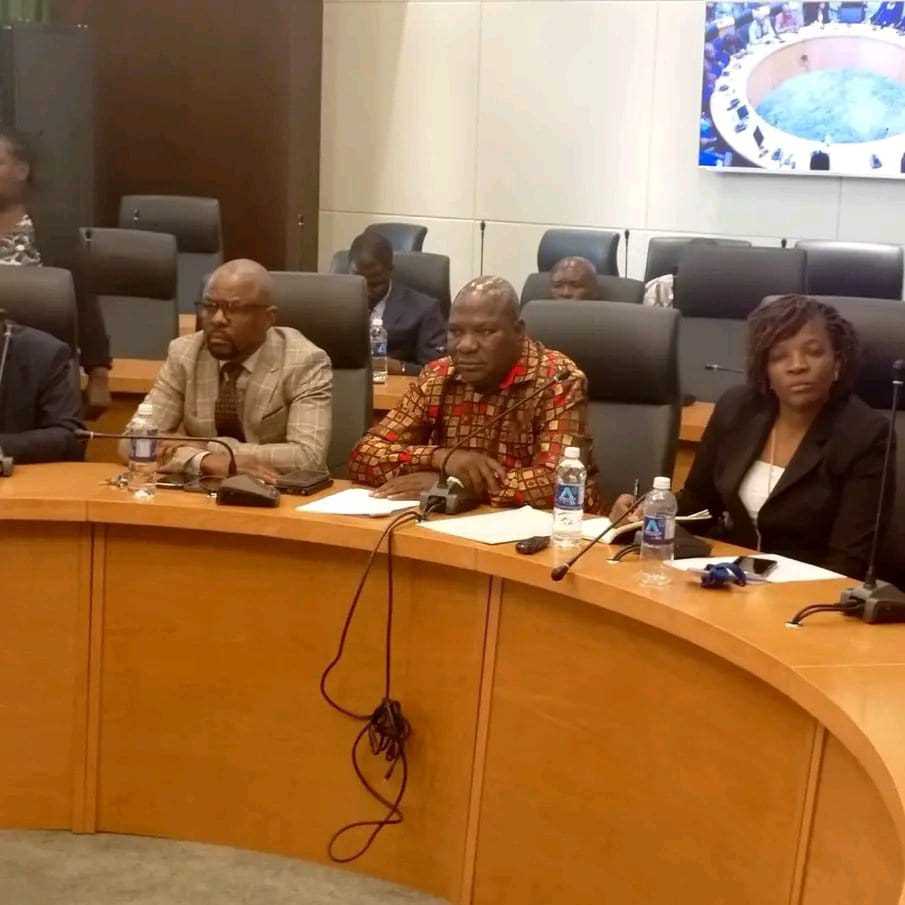
Nyashadzashe Ndoro
Zimbabwean Senators on Tuesday engaged in a heated debate about climate change, its effects on the country, and the role of international actors in both causing the problem and addressing it.
The debate unfolded during a motion on the effects of climate change brought before the Senate by Senator Tambudzani Mohadi.
Senator Solani Moyo, representing Bulilima, spoke about the devastating effects of climate change on his constituency, particularly the lack of rain and its impact on agriculture and livestock. The senator blamed a lack of planning by the government and a disregard for traditional practices that could help mitigate the effects of drought.
Moyo argued for a return to traditional methods of water conservation and rainmaking rituals, while also calling for the government to invest in building dams and irrigation schemes.
“Government should build dams and irrigation schemes where there would be water harvesting. When the rain comes, that water should be harvested so that it benefits communities. This, I believe if implemented by Government, and I also pray that God should allow our Government to have such thoughts, because this intervention would be quite handy.
“I believe that people can visit other areas and get food but our livestock is not getting anything because of the drought. So, Government should intervene in such a way that our livestock has water and stock feeds,” Moyo said.
Sesel Zvidzai, a senator from Midlands Province, echoed the concerns about the impact of climate change on Zimbabwe, but took a more international perspective. He pointed to the industrial revolution and the resulting greenhouse gas emissions from developed nations as the root cause of climate change.
Senator Zvidzai argued that these nations, particularly the United States, China, and European countries, bear the greatest responsibility for the crisis and should be held accountable.
Related Stories
“So, who are the guys, China leads, 31% of the problem that we have on greenhouse gases is because directly of China? Europe, 7.3%, America about 11% spewing all these gases into the atmosphere and fallaciously believing that there is something called borders. Borders are a fallacy; they do not exist. This is why the misbehaviour of China is affecting Zimbabwe.
“This is why the misbehaviour of America is affecting Zimbabwe. This is why the misbehaviour of Brazil affects us. We are all one place, separated by the continental drift, a recent concept where we believe that the globe was one and then tectonic drift happened and we separated. They do not want us to talk about it, yet they are the culprits,” he said.
The opposition senator further criticised the current system of climate finance, which he viewed as unfair and inadequate, with developing nations like Zimbabwe forced to beg for funds from the very countries that caused the problem.
Kucaca Phulu added another layer to the debate by calling for a decolonial approach to climate change policy. He acknowledged the need for action but cautioned against blindly accepting international solutions that could undermine Zimbabwe’s sovereignty and development. Phulu pointed out the hypocrisy of Western nations who dictate environmental policies to Africa while having historically exploited the continent's resources.
“Western countries, historically, are the biggest polluters, and exploiters of natural resources are now attempting to dictate stringent climate laws to African nations like Zimbabwe. This reeks of neo-colonialism that cannot be allowed to continue.
“We cannot ignore the fact that Western countries have disproportionately contributed to the current crisis. I will not hum on this, as my friend had put his foot on it,” the senator noted.
He argued for a balanced approach that considers historical injustices and empowers African nations to pursue sustainable development on their own terms.
The legislators agreed on the urgency of addressing climate change but differed on the best course of action. The debate highlighted the complex challenges faced by Zimbabwe, balancing the need for environmental protection with economic development and the desire for a fair and just international system.
As Zimbabwe awaits its promised Climate Change Bill, the Senators’ discussion is likely to offer valuable insights for crafting effective policies that address the climate crisis while safeguarding the nation’s interests.


















Leave Comments